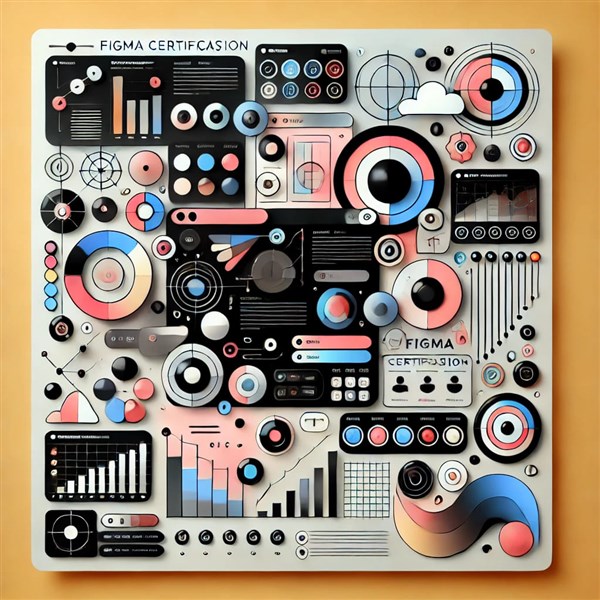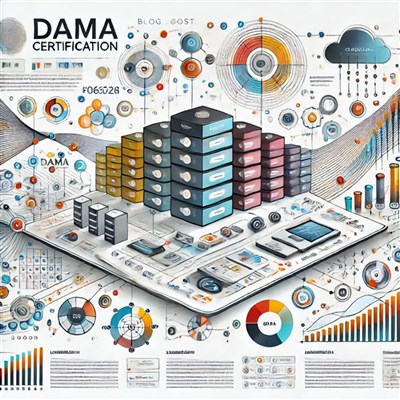
In the rapidly evolving world of UI/UX design, staying ahead of the curve is essential for both career growth and staying competitive in the job market. As the demand for streamlined, collaborative, and intuitive design tools continues to increase, Figma has emerged as one of the leading design platforms. Whether you are a budding UI/UX designer or a seasoned professional, gaining Figma certification can be a game-changer in enhancing your skills and boosting your credibility in the design industry. In this blog, we’ll explore the top reasons why pursuing a Figma certification is a great step for any designer looking to enhance their career.
Reasons to Pursue a Figma Certification
1. Mastering the Leading Collaborative Design Tool
One of the standout features of Figma is its collaborative nature. Unlike traditional design tools that are often limited to single-user access, Figma enables designers to work seamlessly in real time with other team members, regardless of location. The ability to collaborate effortlessly with developers, product managers, and other stakeholders in real-time makes Figma a top choice for many teams.
Figma certification provides a deep understanding of these collaborative features, ensuring that designers can make the most of this tool in group settings. Whether it's sharing designs, commenting in context, or co-editing a design file, mastering Figma’s collaborative features enhances a designer’s ability to work in fast-paced, remote, or global teams.
2. Strengthen Your Design Skills with Best Practices
Achieving Figma certification involves learning how to use Figma to its fullest potential. Through comprehensive courses and training programs, designers are introduced to industry best practices for design systems, prototyping, and visual hierarchy. With Figma certification, designers are taught how to create consistent and scalable designs using components, grids, constraints, and other advanced features.
The training emphasizes effective workflows, efficient file management, and the development of prototypes that seamlessly transition from design to developer handoff. All of this helps designers gain advanced technical skills that increase their proficiency and ability to deliver high-quality work.
3. Stand Out in the Competitive Job Market
The design industry is highly competitive, with thousands of designers vying for roles at top companies. Employers are always on the lookout for candidates who demonstrate a high level of expertise and proficiency in industry-standard tools. Figma certification is an excellent way to set yourself apart from the competition.
Having a Figma certification signals to potential employers that you have a solid understanding of the tool and are committed to continuous learning. This can be especially important for freelance designers or those looking to pivot into UI/UX roles, as it provides measurable proof of your skills, which can enhance your chances of getting hired or landing new projects.
4. Increase Your Job Opportunities
The demand for skilled UI/UX designers proficient in Figma is growing rapidly across various industries, from tech startups to global enterprises. By obtaining Figma certification, you gain access to an array of career opportunities. This certification can open doors to positions such as UI/UX Designer, Product Designer, Interaction Designer, and even Design Lead, all of which are increasingly asking for experience with Figma.
The credibility gained through a Figma certification demonstrates to employers that you are a qualified and capable candidate, which can improve your chances of advancing in your career or transitioning into a more senior role. Additionally, many companies now require knowledge of Figma specifically, and being certified provides you with a competitive edge.
5. Improved Efficiency and Productivity
Designers who are proficient in Figma are able to work more efficiently and productively. The tool’s intuitive interface, combined with its extensive features, helps designers speed up their workflows, reducing the time it takes to create prototypes, wireframes, and user interfaces. Through Figma certification, designers learn how to streamline their processes, improve their design speed, and eliminate redundant tasks.
By understanding how to leverage Figma’s powerful features like component libraries, design systems, and reusable templates, designers can work faster and ensure consistency across all projects. With these skills, they become an asset to any design team, improving team productivity and the overall quality of deliverables.
6. Learn to Create High-Fidelity Prototypes
Prototyping is a crucial aspect of UI/UX design, and Figma is widely regarded as one of the best tools for building interactive, high-fidelity prototypes. With Figma certification, you’ll master the art of creating prototypes that are not only visually stunning but also interactive and functional. These prototypes are often used in user testing, allowing designers to test and validate design decisions early in the design process.
Certified Figma users can create complex interactive elements, animations, and transitions that simulate the final user experience. This ability to create realistic prototypes is crucial for securing buy-in from stakeholders and for conducting usability testing before the development phase.
7. Boost Your Design Portfolio
A Figma certification can significantly enhance your design portfolio by demonstrating your expertise in one of the most powerful and popular design tools on the market. When prospective clients or employers see that you are certified in Figma, they immediately know you are proficient in creating top-tier designs using industry-standard tools.
Moreover, Figma certification offers you the chance to showcase your knowledge by integrating real-world projects into your portfolio, such as complete design systems, high-fidelity prototypes, and collaborative design processes. A strong portfolio, backed by Figma certification, increases your chances of attracting high-profile clients or landing a job at a leading design agency.
8. Prepare for Future Design Trends
As UI/UX design continues to evolve, it is important for designers to stay ahead of the latest trends and technologies. Figma is constantly updating its features to incorporate the latest design trends, making it an essential tool for the modern designer. By earning Figma certification, you ensure that you are not only proficient in the current tools but also prepared for the future.
From accessibility improvements to incorporating artificial intelligence (AI) into design workflows, Figma continues to innovate. Staying certified ensures that you are aware of these trends and can adapt your skills to meet the ever-changing demands of the industry.
9. Gain Confidence in Your Design Skills
Figma certification provides formal validation of your skills, which can significantly boost your confidence as a designer. With the growing complexity of design challenges, having a recognized qualification helps solidify your credibility and mastery of the tool. Confidence in your skills allows you to take on more challenging projects, work with high-profile clients, and communicate more effectively with your design team.
When you’re confident in your skills, you can also advocate for design decisions more effectively and have more influence in the product development process. This added confidence leads to better job performance and satisfaction.
Conclusion
Pursuing Figma certification is a strategic decision for UI/UX designers who want to stay competitive in the evolving design landscape. Not only does it provide you with a deep understanding of Figma’s features, but it also enhances your productivity, collaboration skills, and job prospects. Whether you’re an aspiring designer or an experienced professional, Figma certification offers tangible benefits, from improved design skills to expanded career opportunities. As the demand for skilled UI/UX designers continues to grow, Figma certification can help set you apart and open new doors in your design career.
Koenig Solutions is a leading IT training company that provides comprehensive Figma courses. With expert instructors, updated curriculum, and flexible training schedules, we ensure you get the best learning experience.
In conclusion, a Figma certification can open up a plethora of opportunities for UI/UX designers. So, why wait? Enroll in a Figma course today and take your career to new heights.







COMMENT